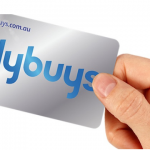Survey reviews sentiment around loyalty programs

In an era where consumer behaviour is more complicated than ever before and the entire retailer environment has been flipped on its head, does the age-old loyalty program still add value?
New research by Power Retail has synthesised insights from over 6,000+ shoppers and retailers to dissect this topical issue. The research found that 35 per cent of Australian online retailers who are operating a loyalty program feel that it is not at all important to their on-going business success.
Despite this sentiment, 65 per cent of retailers believe that loyalty programs have the potential to deliver a positive outcome across all aspects of the customer journey, including new customer acquisition.
Managing Director of Power Retail, Grant Arnott said given the size of the prize on offer with a great loyalty program, it’s ludicrous that this area is not the top priority for every retailer. If you look at the value created globally in programs such as Amazon Prime, and locally with Myer One and Coles Flybuys, they’re acquiring invaluable data and insights, and providing their customers with genuine benefits – no doubting leading to a more loyal audience and increased sales.”
“It’s notable that both Amazon Prime and eBay Plus were listed on our ‘Top 25 Most Popular Retailer Loyalty Programs’ in our report. Although they’re only just entering the Australian market, their programs are continually gaining popularity as they’re offering digital benefits, such as music and video content. I urge Australian retailers to take note and think outside of the norm for their program.”
Other key findings from the Loyalty Report include:
- 92% of online shoppers engage with at least one program, and 15% belong to 10 or more.
- The ability to accumulate points across a variety of retailers (54%) and being easy to use both online and in-store (50%) stand out as the most important reward program benefits.
- Potential turn-offs were also flagged, such as taking too long to earn rewards (43%), a fear of getting spammed (35%) and that the rewards are not very appealing (34%). Worryingly, the research found that only 4% of Australian online retailers allow their loyalty program members to select contact frequency, given consumers’ concerns around spamming.
- 40% of retailers offer a loyalty program, providing general insights into customers was a reason given by 67% of retailers who currently operate a loyalty program. Interestingly, it is believed by many that the recent explosion and subsequent commoditisation of consumer data will eventually lead to the phasing out of loyalty programs.
- 23% of online retailers are currently considering implementing a loyalty program, however the data also suggests that around 70% of those who consider implementing a loyalty program eventually decide against it.This finding is surprising and terrifying for the retail industry as they appear to be dismissive of loyalty programs.
“Retailers who have a lacklustre approach to loyalty, and aren’t prioritising value and retention, are destined to suffer long term. Currently, there is a lack of education and discipline around loyalty in Australia. However, I believe this will change with better data and insights, and greater competition (especially international) that will enter and threaten the retail industry.
“I believe the benefits and structures of loyalty programs will also continue to evolve, and key players in the online shopping sector such as Catch and Amazon Prime will continue to dominate. I also anticipate that non-competing retailers will partner to create larger-scale loyalty program that offer benefits across a broad range of categories e.g. travel, homewares and grocery in order to survive.”



